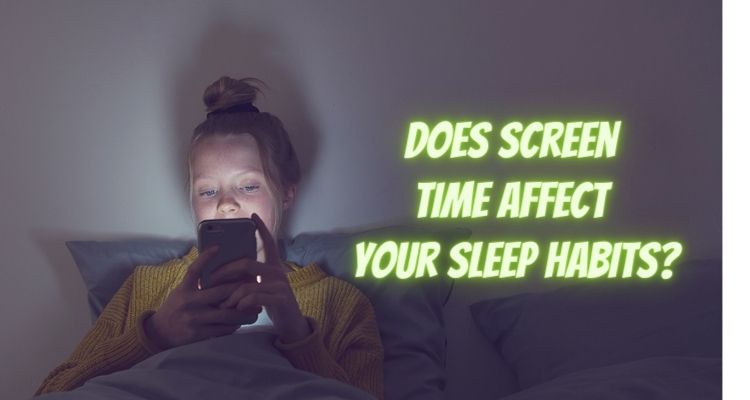Sleep is a vital element to one’s overall health. It is recommended that we get 7-9 hours of sleep a night, but many do not come close to this. Having a balanced circadian rhythm is an important part of sleep. It is the internal clock that tells you when to wake and when to sleep.
But with technology increasingly becoming a crucial element in our daily lives, the constant use of electronic devices with bright screens before bedtime may affect your sleeping patterns. Sutter Health reports that 90 percent of the American population often use such devices in the hour before going to bed, harming their sleep. Here is why screens affect sleep and what you can do to improve your sleep.
Why Screens Affect Your Sleep
Screens emit blue light, a natural part of the light spectrum, which tells the body that it is daytime even when it is not.
Therefore, screens suppress the body’s natural production of melatonin, the hormone that tells the body it is time to sleep. Failure to get adequate sleep or have good sleep quality can lead to other health complications like heart disease, obesity, high blood pressure, etc.
To improve sleep, put your screens away a few hours before bed. You can also get blue light filtering glasses if being on your screen is necessary.
How to Improve Sleep:
Get Comfortable
In addition to putting the screen away, you can improve sleep by getting in a comfortable environment. This will help you fall asleep quickly and stay asleep for a longer period, improving your sleep quality. You want a dark and slightly cool room for sleep.
It would help if you also have a comfortable mattress and pillow that fits your specific sleep needs. For example, you can get a good mattress for side sleepers if you want something that offers pressure point relief and contours to your body shape.
Create a Routine
Falling asleep and waking up at the same time every day helps to maintain a healthy circadian rhythm. That is why it feels awful when you are jet-lagged.
Bedtime routines often feature calming activities that the brain perceives as precursors for sleep. Having one will help reduce late-night stress and anxiety, prevent insomnia, and relax your body and mind into sleep.
So, create a relaxing nighttime routine that does not involve a screen. You could take a bath, meditate, read, listen to music, or spend time with family.
Eat and Drink Right
Eating and drinking right will help to improve your sleep health tremendously. Diet and nutrition often influence sleep quality, meaning that what you eat and drink can make it harder or easier to get the sleep you need. Having a lean protein, high fiber, and leafy green diet is the way to go. Avoid sugars and salts as much as possible.
Also, limit alcohol use and try not to drink caffeine in the afternoon as it takes 10 hours to get out of your system. Instead, drink lots of water to help your body absorb nutrients properly and create the perfect chemical environment for your brain to maintain sufficient sleep.
Be Active
Being physically active helps to maintain the circadian rhythm. It is a bidirectional relationship that can help optimize the amount of sleep you get and its quality.
Exercise often tells the body it is working, so it must be daytime. Winding down in the evening and being less active tells the body it is nighttime.
Being active expends energy during the day and prepares your body and mind for bed at the end of the day. Also, the immune, physiological, psychological, and circulatory benefits of exercise help sleep.
Take a Melatonin Supplement
A melatonin supplement can help when your sleep routine is way off. You can also take one if you feel distracted, stressed, and in need of a little extra sleep aid.
If you look at a screen a lot during the day, you could also use melatonin to jumpstart your hormone production for better sleep. But be sure to consult a doctor before taking a supplement.
Improving Your Sleep Habits
As an essential function, sleep often provides the body and mind with a unique opportunity to recharge and stave off diseases. After a hard workday, your circadian rhythm prompts the brain to produce melatonin, which initiates sleep.
Having a balanced circadian rhythm helps maintain a healthy sleep cycle, ensuring that you constantly get enough sleep at night. But with the advent of technological inventions, the constant use of electronic devices with bright screens alters normal circadian functions and impairs sleep quality.
But do not worry, as there are many ways to improve sleep. Just remember to make your bedroom cozy, create a bedtime routine, eat and drink right before bed, be physically active during the day, or take a melatonin supplement to help you sleep.




